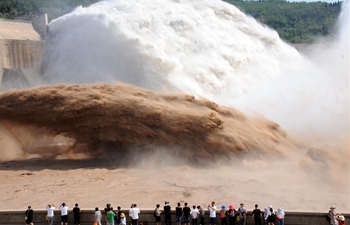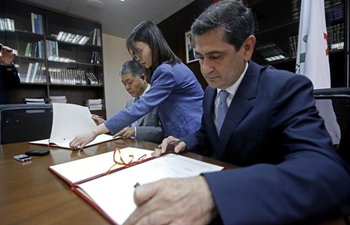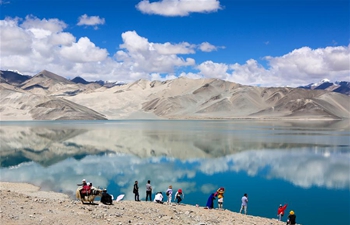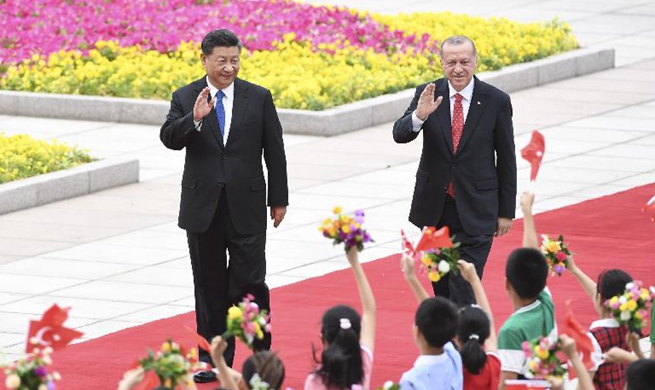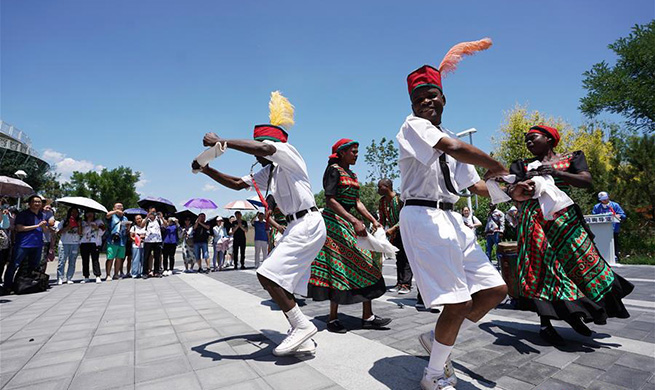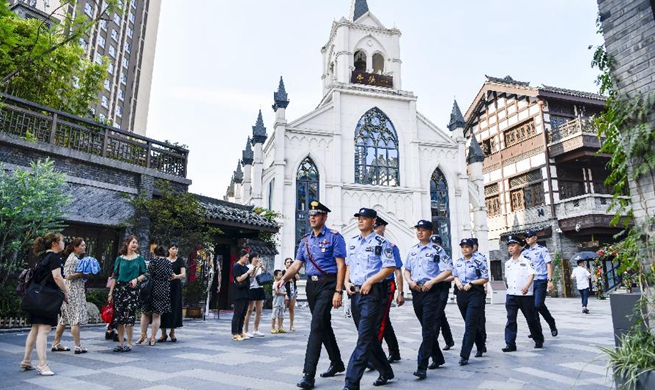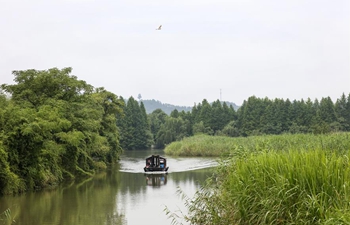TOKYO, July 3 (Xinhua) -- Japanese Defense Minister Takeshi Iwaya on Wednesday apologized to Yamaguchi Governor Tsugumasa Muraoka over an error in the ministry’s geographical survey that led to the prefecture in western Japan being selected to possibly host the controversial Aegis Ashore missile defense system.
Iwaya told Muraoka that the survey would be carried out again and a detailed explanation given.
"We'll conduct the survey again and offer an explanation in detail," Iwaya was quoted as telling Muraoka at the Yamaguchi prefectural office.
A Ground Self-Defense Force (GSDF) training area in Yamaguchi is one of two candidate sites for the deployment of the land-based Aegis Ashore missile defense system, along with a GSDF training area in Akita Prefecture, in Japan’s northeast.
Muraoka slammed the ministry’s error stating that such a mistake should never be repeated.
"The survey data is the most important basis for assessing the possible impact of the missile system on our region. We urge you never to repeat such a mistake," Muraoka said.
Iwaya, last month, was forced to apologize for another mistake that was made in a geological survey to select candidate sites for the missile defense system, with the Defense Minister saying that officials had made a miscalculation involving the elevation of a mountain at a potential candidate location.
Iwaya also had to apologize to Akita Gov. Norihisa Satake for the ministry’s initial flawed geographical survey that led to the northeastern prefecture being selected as a candidate site for hosting the contentious missile system.
Iwaya said the ministry will carry out an on-site survey and use experts to fix the numerical errors found in the ministry’s first survey.
Defense ministry officials initially used Google Earth virtual globe software to display cross sections of candidate locations’ topography, but failed to correctly calculate distances and altitudes correctly, due to not accounting for the necessary scale reductions.
Officials then reportedly used rulers and protractors to calculate the elevation angle of mountain peaks at nine out of 19 candidate sites in the Tohoku region, leading to some potential deployment locations being erroneously rejected for being too steep and for possibly blocking radar signals.
Local officials and residents in the prefectures that may end up hosting the missile system have been up in arms about the ministry’s errors, with opposition party members also voicing major concerns over the ministry’s debacle.
Concerns were further raised when Iwaya admitted that people living in the vicinity of the missile system could fall ill due to electromagnetic waves generated by the system's radars.
Asked during an Upper House committee meeting what might happen to a child or a pregnant woman if they spent 10 minutes, 50 meters away from a radar during its maximum operational output, Iwaya said their body temperature might rise and they could feel unwell.
Opposition party members previously described the ministry's fiasco as “disgusting” and stated they have been “stunned” at its behavior.
Some opposition party members have maintained that Prime Minister Shinzo Abe’s push to revise Japan’s pacifist constitution, in light of the defense ministry’s monumental slip-ups, was now unthinkable owing to such basic mistakes being made and the ministry’s behavior.
